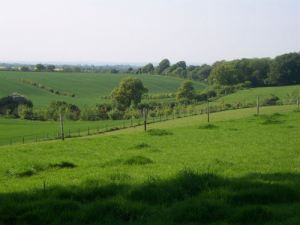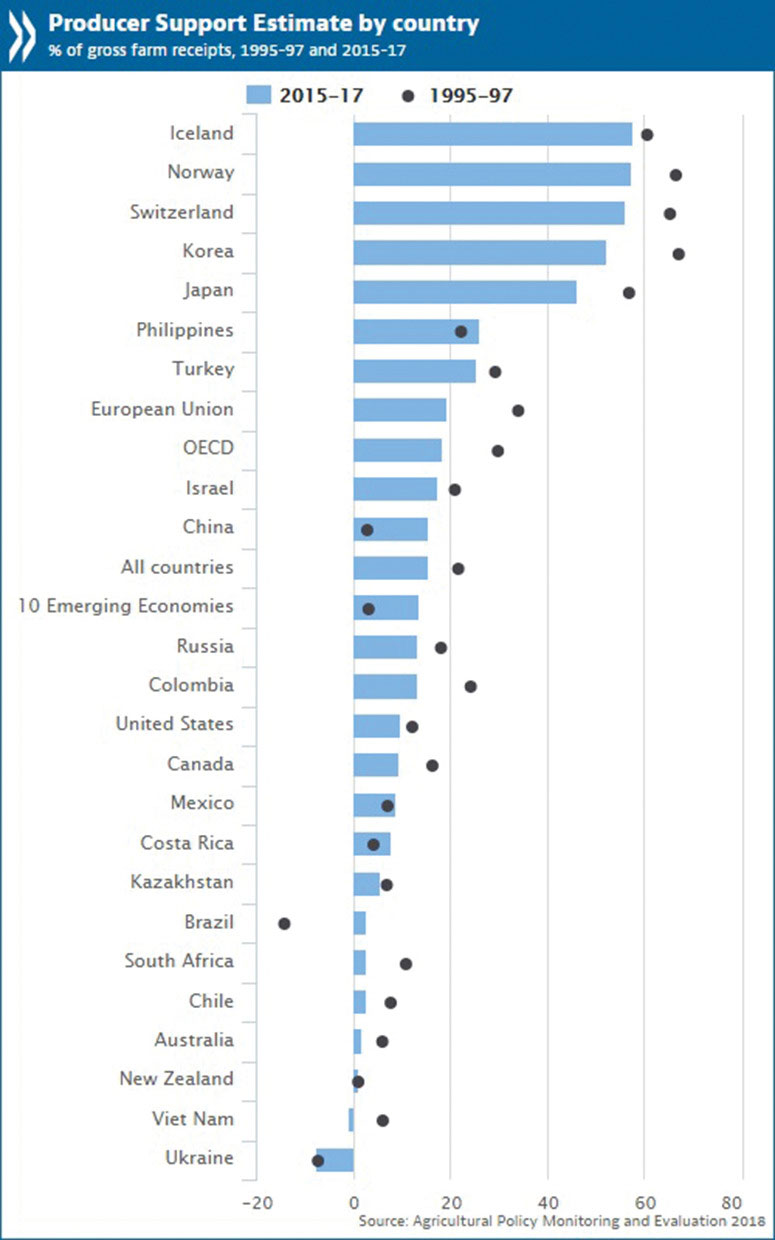European farmers hurting too
European dairy farmers are hurting too, says Primary Industries Minister Nathan Guy.
 The report shows that the 51 countries reported on, plus 10 key emerging economies, paid on average US$620 billion annually to support farmers in 2015-17.
The report shows that the 51 countries reported on, plus 10 key emerging economies, paid on average US$620 billion annually to support farmers in 2015-17.
More progress is needed on reducing and redesigning the world’s farm subsidy policies, says a new report from the OECD.
It says most farm subsidy policies remain poorly aligned with defined objectives, and measures that distort production and trade keep increasing in some countries.
The OECD’s ‘Agricultural Policy Monitoring and Evaluation 2018’ report shows that the 51 countries reported on – all OECD and EU, plus 10 key emerging economies – paid on average US$620 billion annually to support farmers in 2015-17. Of this, nearly two-thirds is still provided via measures that strongly distort farm business decisions.
The report said almost 80% of the money went to individual farmers. Only 14% went to R&D or the infrastructure needed to equip farming for future challenges.
The report recommends looking hard at how to increase productivity growth sustainably and enhance environmental performance, especially given changing climates. Support should be aimed at helping farmers to better manage risks from weather, markets or other shocks that cannot always be anticipated.
 The OECD says the report underscores that most agricultural policies today are not well-aligned with these objectives.
The OECD says the report underscores that most agricultural policies today are not well-aligned with these objectives.
“Progress in lowering support levels and shifting towards less distorting measures remains partial, and is not shared across all countries,” said Carmel Cahill, deputy director of the OECD trade and agricultural directorate.
“Government support of market prices harms consumers -- especially the less well-off -- and reduces the competitiveness of the food industry itself.
“Removing damaging and distorting policies is an important first step.
“Support directly linked to output and input use makes domestic and international markets work less efficiently, encourages environmentally harmful over-use of farm inputs and consumes limited public funds that could be used for more efficient investments in the sector.”
Cahill says countries should re-direct farm subsidies to ensure the availability of public services that benefit producers, consumers and society overall.
The report said the biggest subsidies are paid by Iceland, Norway, Switzerland, Korea and Japan – 40-60% of total farm earnings.
New Zealand and Australia are at the bottom of the OCED table of government support for farming.
Following a side-by-side rolling into a gully, Safer Farms has issued a new Safety Alert.
Coming in at a year-end total at 3088 units, a rise of around 10% over the 2806 total for 2024, the signs are that the New Zealand farm machinery industry is turning the corner after a difficult couple of years.
New Zealand's animal health industry has a new tool addressing a long-standing sustainability issue.
The Government has announced that ACC will be a sponsor of this year's FMG Young Farmer of the Year competition.
As veterinary student numbers grow to help address New Zealand's national workforce shortge, Massey University's School of Veterinary Science is inviting more veterinary practices to partner in training the next generation of vets.
South Island dairy farmers will soon be able to supply organic milk to Fonterra.

OPINION: Meanwhile, red blooded Northland politician Matua Shane Jones has provided one of the most telling quotes of the year…
OPINION: This old mutt has been around for a few years now and it seems these ‘once in 100-year’ weather…